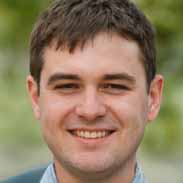IB History| Castro Rise to Power – Flashcards
Unlock all answers in this set
Unlock answersquestion
Jose Marti
answer
A Cuban revolutionary who led the Second War of Independence. He was also a political thinker and lawyer and was anti-capitalist and pro-labor. In 1892, he set up the Cuban Revolutionary Party (PRC) and yet was critical of traditional Marxist ideology. He fought and died against the Spanish in 1895. His legacy has had a heavy influence on all of Cuba and Castro references it to grant himself political legitimacy.
question
Platt Amendment
answer
Enacted in the year 1901. Took advantage of a loophole within the Teller Amendment, "except for the pacification thereof" and made Cuba a neo-imperialistic colony as it gave the US rights to hold territories in Cuba, such as Guantanamo Bay. The U.S. also acquired claimed the right to interfere in Cuban affairs through this amendment and continued through 1959 with Batista's fall from power.
question
July 26 Movement
answer
The movement formed immediately upon Batista's release of the Castro brothers and other prisoners. It was originally associated with the Chibasismo (the Chibás wing of the Ortodoxos) but, in July 1955 it moved to Mexico as Castro and his supporters planned to overthrow Batista.
question
"History will absolve me" Speech
answer
This four hour speech was made by Castro when he was tried following the Moncada Attack. It served to become the manifesto of his movement.
question
Granma Expedition
answer
In 1956, Fidel and Raul Castro returned from exile aboard the overcrowded and poorly equipped yacht Granma. They landed on the southern coast of Oriente with 80 rebels who had been recruited in Mexico. Due to the radio failure and the engines that were poor, Granma reached Cuba two days behind schedule and the army was prepared for the strike in Cuba .
question
Moncada Assault
answer
Failed attack on July 26, 1953, Cuba exploded into revolution when Fidel Castro and about 140 rebels attacked the federal garrison at Moncada. Many of the rebels were captured and executed, and Fidel and his brother Raúl were put on trial. First armed action of the Cuban Revolution and beginning of July 26th Movement.
question
Fulgencio Batista
answer
Cuban Dictator. Soldier and political leader who ruled Cuba, jailing his opponents, using terrorist methods. Cultivated support of the army, civil service, and organized labor. Governed effectively by expanding the educational system, sponsoring a public works program, and fostering economic growth. After leaving to Florida for eight years Cuba went downhill. Batista regained power through a bloody military coup. Continued dictator ways.
question
Spanish-American War
answer
A war between Spain and the United States fought in 1898. The war began as an intervention by the United States on behalf of Cuba.
question
Monoculture economy
answer
The agricultural practice of producing or growing one single crop over a wide area. In Cuba it was the production of sugar that provided the most important income for the republic.
question
US investment
answer
The development of Cuban service and utility industries, such as gas, electricity, communications, railways and the banking system, relied upon large amounts of US investments.
question
Social and economic problems from Cuban workers
answer
The living conditions for workers were precarious. Wages were low; housing was limited and access to health and education not available to all. Few rural areas possessed running water or electricity. Illiteracy was widespread and sugar workers were seasonal.
question
Corruption
answer
Between 1944 and 1952 there was a return to democracy, but corruption continued to dominate every branch of the government, while Cuba faced inflation and unemployment. In 1952, Batista returned to the political stage and overthrew President Carlos Socarras. He suspended the constitution to rule as a dictator. During this period, political corruption continued to reign. As economic problems worsened, social and political unrest developed.
question
Deterioration in the terms of trade
answer
Cuban economy worsened because of the decline in sugar prices on international sugar market. As price of sugar dropped, Cuba found it more expensive to purchase the goods it did not produce at home.
question
Sierra Maestra
answer
Support for Castro and the rebels bu the people from the mountrain increased with time and varied from supplying the army with food and shelter to joining the rebels. This was were the rebels trained and stayed while recruiting people there. They helped with reforms, food, hospitals etc for the people.
question
Castro's appeal to peasants
answer
Castro's forces did not steal from the peasants and always paid for the food they were given. They respected women, put their medical doctors at the service of the peasants, taught them to read and write and even helped in the households.
question
Radio Rebelde
answer
The rebels made use of the radio to spread their message and news abou event in the Sierra. This began to broadcast from 'the territory of Free Cuba in the Sierra in 1958. People tuned in because they relied more on the news from them than on the government media.
question
Los Barbudos
answer
the bearded ones; revolutionary figures
question
January 1, 1959
answer
Politically isolated and unable to control the situation, Batista fled Cuba on this date. The army refused to continue fighting against the rebels and an immediate ceasefire was ordered.



